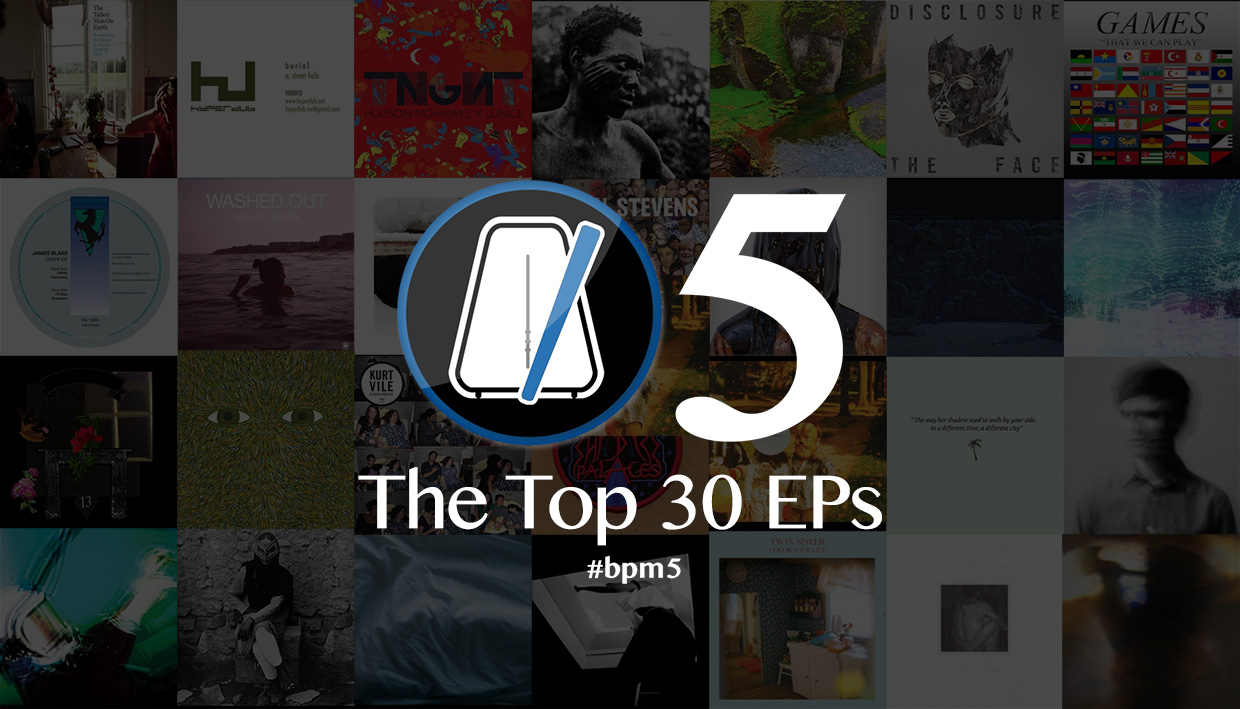
15
Jens Lekman
An Argument With Myself
[Secretly Canadian; 2011]
If you ever wanted to keep up with what Mr Jens Lekman is up to, then you’d be right to just keep reading his Smalltalk blog which documents his various endeavours and thought processes. Obviously everything that fills his days aren’t written there, and for that reason we should be grateful the man also writes brilliant songs that detail life in Sweden (and beyond), and how love often overtakes him. On his An Argument With Myself EP, Lekman give a brief rundown on a few tales and encounters that came his way since the release of his exemplary sophomore album (Night Falls Over Kortedala), and it paints a picture a man who is still somewhere between walking steady and figuring life out. The title track is just as it states itself to be, with Lekman inadvertently describing the distasteful colour of Australia’s nightlife; “New Directions” is the long-awaited recording of a live favourite that comes beefed up with yet another joyous sax solo; and the standout “Waiting For Kirsten” details a missed encounter with actress Kirsten Dunst while also commenting on the state of Sweden as a whole. Such is Lekman’s world: he might be talking about the little things, but he’s filling the palette more than you think, and before you know it, you’ve got a new outlook on life.
– Ray Finlayson

14
Clams Casino
Rainforest
[Tri Angle; 2011]
The emerging cloud rap scene has to be one of the weirder ones to place itself at the forefront of the indie consciousness, and the whole scene places its roots in the productions that Clams Casino has put out over the last couple of years with Lil B and Soulja Boy. Early on in 2011, he put out a large majority of these beats on his Instrumental Mixtape, but midyear saw a fully realized collection of works that Clams could call entirely his own. Though Instrumentals was immediate and rewarding, it was apparent, on the second half of the album in particular, that these were first and foremost productions for other artists that happened to sit well on their own. Rainforest suffers no such problems. Tracks like “Gorilla” swell and build entirely on their own merit at no point seeming empty, repetitive, or otherwise begging for vocals. It was here that Clams Casino proved that while he may be a highly in demand rap producer, his compositions are much bigger than simply instrumentals for the next blog rapper to stumble all over.
– Colin Joyce

13
Washed Out
Life Of Leisure
[Mexican Summer; 2009]
It’s difficult to address Washed Out’s hazy, synth atmosphere without at least mentioning the dreaded “C” word at least once. But contrary to what you’ve been led to believe – or at the very least, been told – chillwave is not a dirty word said in the dark corners of dimly lit record stores. And while the term has had its detractors, namely those who dismiss it as a lazy approach to nostalgia-based music, Washed Out (aka Ernest Greene) never attempts to use these aqueous synths and processed vocals to cover over a lack of memorable melodies and creative instrumentation. Coming across as the often jumbled ramblings of someone who is not quite awake, though not quite asleep either, Life of Leisure seeks to document those fleeting moments where the barriers between our subconscious and the waking world seem blurred beyond distinction.
– Josh Pickard

12
James Blake
Klavierwerke
[R&S; 2010]
Before he wrote songs, James Blake built sounds. Klavierwerke, the second installment in his introductory EP trilogy, was the coy cousin of the much jerkier CMYK, all soul and soft touches. Blake isn’t one for emphasis, but you hang on to everything. “Don’t You Think I Do” is dusty and smudged, the title track a lively microhouse hybrid. But the anchor is “I Only Know (What I Know Now).” It is still as devastating as it was the first time you heard it, and gets by on next to nothing. It’s a featherweight that punches like brostep.
– Brendan Frank

11
Andy Stott
We Stay Together
[Modern Love; 2011]
The second of Andy Stott’s 2011 pair of stellar EPs, We Stay Together may have what seems like a more heartwarming title than its predecessor Passed Me By, but taken in context with the spooky sounds and low-level frequencies that make up its six tracks, it becomes something much more sinister. The phrase “we stay together” starts to seem more like the memory of someone deceased haunting you internally and infernally, as the dark grey tones and sub-hellish bass mingle with disembodied and pitch-shifted-to-oblivion vocal samples. Or perhaps “we stay together” refers to other unseen physical beings that are around you; the scrapes and clicks that Stott uses to build up his rhythms on songs like “Bad Wires” or “Cracked” put you into a pitch-black cell block where other unknown bodies are moving around; scraping, grating and squeaking their shackles as they do so. And then, of course, there’s that ominous bass thump that went on to be used so effectively on his 2012 LP Luxury Problems, which sounds like the goblins’ drums booming up from the depths of Moria. However, whereas Luxury Problems had Alison Skidmore’s vocal samples to humanize it (somewhat), there’s no such reprieve here: this is dance music for the damned.
– Rob Hakimian
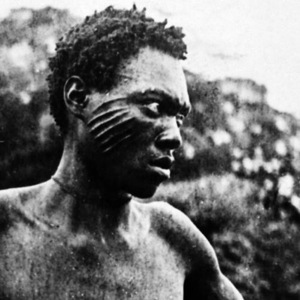
10
Andy Stott
Passed Me By
[Modern Love; 2011]
Bass. Dubby, impossibly deep, cavernous, Merciless bass. Andy Stott’s inventive use of bass was part of what made 2009’s Merciless LP such a joy to behold, but it wasn’t until his two 2011 releases — Passed Me By and We Stay Together — that he showed us just how far into the low end of the frequency spectrum he could plunge. Proper opener “New Ground” exemplifies this spelunking: a gritty low end that sounds like it’s been compressed to primordial ooze is juxtaposed with an ethereal female vocal sample. “North to South” trades the voice for an unsettling, high-pitched moaning noise and distorted dub pads played a couple octaves higher than what we’re used to hearing. Passed Me By is a study in contrasts; given two sensory extremes, our brains will often try to split the difference, resulting in an imagined but not altogether unreal middle. And so the dabs of strings and voice clippings on “Intermittent” parry with a squelching acid bass and a booming drum that’s darker than midnight. That Stott not only makes these contrasts work but also makes them sound beautiful is a testament to his skill as one of the most creative minds making electronic music today.
– Josh Becker

9
Forest Swords
Dagger Paths
[Olde English Spelling Bee; 2010]
When Engravings hit a couple of months back, some wondered if the enigmatic Forest Swords had missed the opportunity to capitalise on the moderate hype generated by Dagger Paths, an unexpected critical success. That he did shouldn’t have come as a surprise, as the pacing here is metronomic in its precision. With very limited wares – basically guitar and a laptop, though his voice does drift across the mix now and again – he painted a desolate landscape around him with purposefully unhurried strokes. What made it particularly intriguing was that instead of the brittle loop-based constructions you may expect, there’s a rare density to this work – dubbed out and faded, but with a clean tonality that separates it from the more alien textures of Tri Angle’s comparable stable. Moreover, instead of winding up as just another paean to the witching hour, tracks like “Miraches” and “If Your Girl” carry a strange sense of uplift, akin to the cleansing sensation of hiking through a foggy moor on a Sunday morning.
– Gabriel Szatan

8
The Antlers
Undersea
[Anti-; 2012]
The emotional core that gave The Antlers’ breakthrough album Hospice its thrust and won them a slew of fans might have sunk many other bands when it came to producing a follow up, but with Burst Apart they managed to hit similar levels of emotional resonance lyrically while getting more adventurous musically. The EP that then followed it up, Undersea, delves even further down into this cavern of sonic exploration and in it The Antlers found a watery cosmos of new sounds. The bite that they once had is entirely eradicated on Undersea and in its place we find Peter Silberman floating through it using his lofty and angelic voice dispersing somnambulant and surreal lyrics about endless ladders, being caught in between two worlds, or dissolving into a million pieces. Appropriately there are many aquatic themes running throughout, and this is matched on the musical side by plenty of heavily reverbed guitars, ghostly resonating horns, shivering pianos and quaking synthseizers. Undersea is only 4 tracks and 22 minutes, but their richness and depth makes it as essential a piece of The Antlers’ discography as anything they’ve done.
– Rob Hakimian
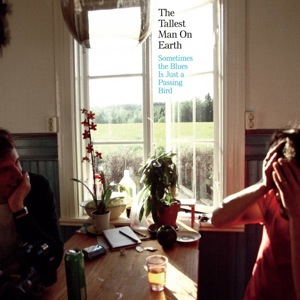
7
The Tallest Man On Earth
Sometimes the Blues is Just a Passing Bird
[Dead Oceans; 2010]
Kristian Matsson, aka The Tallest Man on Earth, is without a doubt one of the finest songwriters to emerge since the turn of the century, and one of the most consistent. In early 2010 Matsson released his second LP, the stunning The Wild Hunt, and just half a year later came this EP. While that might imply it being simply the leftovers from the record – which might be true – there’s nothing to suggest it in the music.
The EP includes one of Matsson’s most tender moments; the beautiful ballad “Thrown Right at Me” – a favourite of his live shows when performed as a duet with the subject of the song, his wife Idiot Wind. The EP is also a continuing step in Matsson’s sonic evolution, containing his first use of electric guitar (on a TTMOE release) on the poppy “The Dreamer” while still keeping with his previous aesthetic – a guitar-based version of The Wild Hunt bonus track “Like the Wheel” (originally performed on piano) is another highlight. While Sometimes the Blues is Just a Passing Bird is a minor release in The Tallest Man on Earth’s discography that speaks more to the immense quality of his work than any lack of quality here.
– Johan Alm
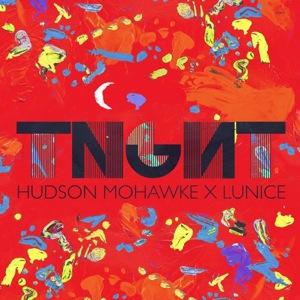
6
TNGHT
TNGHT
[Warp; 2012]
Let’s face it; despite how impressive the rapid and monstrous rise of EDM over the past five years is, at the end of the day, quite a bit of it is pretty damn terrible. The vast majority of artists working within the genre today are crafting works that fall somewhere between derivative, meandering, or just plain awful. And the longer you’ve been paying attention, the more it feels like the genre has run out of steam — with every subsequent release sounding more and more like a death rattle.
It’s surprising then, that one of the strongest EPs in quite some time was born out of EDM. Hudson Mohawke and Lunice’s TNGHT EP is a five-song blast of electronic dance music aimed straight at the pleasure center – a rapid-fire mix of the very best of modern hip-hop and rave music that is irresistible from beginning to end. More than any other release in recent memory, TNGHT truly goes for broke throughout the EP, throwing everything but the kitchen sink at the listener and stuffing each track with more sounds, transitions, and effects than most of their peers can manage within an entire full-length album. In this light, it’s easy to see why this mere 15 minutes of music has catapulted the duo to the very top of the EDM hierarchy. The TNGHT EP is the rarest type of debut: an instant classic — fully realized in sound, identity, and presentation.
– Cole Zercoe
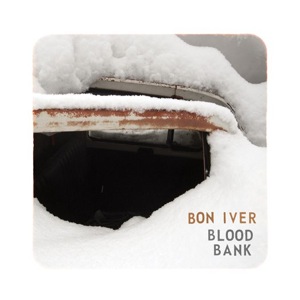
5
Bon Iver
Blood Bank
[Jagjaguwar; 2009]
Bon Iver’s only EP to date was more of an extension to their amazing debut For Emma Forever Ago than something new. Title song “Blood Bank” was actually scrapped from the album before appearing here. But I don’t think there were any complaints with the lack of anything new. So good was the debut that more of the same was exactly what fans were craving for. But they did offer a fresh new look at the use auto-tune on last single “Woods.” Justin Vernon’s stuttered singing went the whole length of his vocal range and showed how to use auto-tune creatively and not simply as a vocal fail safe. The song was impressive enough for Kanye West to use it in his highly acclaimed album My Beautiful Dark Twisted Fantasy where it was reworked into the song “Lost in The World.”
– Leslie Fernandez

4
Burial
Street Halo
[Hyperdub; 2011]
Burial’s music is often said to be the kind best experienced whilst walking alone in a city at night. Consequently, it’s of no surprise that a lot of his music suits a feeling of loneliness, and Burial’s Street Halo EP might just be his loneliest sounding release to date. There’s vibrancy in the title track, but its hazy textures hiding underneath the ghostly tones make it sound like a gig being heard from the other side of a concrete wall. “Be mine” the singers pleads over and over, and it rings out unanswered into night. The fake fade-out even teases a sense of humour, like the party is within reach before dying away completely. “Stolen Dog” beats back and forth, like a mind lost to the dark grey tones of tenement buildings before falling into a brooding sense of trepidation. Highlight “NYC” chugs along like half-listening to music on a subway train, going nowhere in particular. Street Halo as arguably Burial unchanged, bit if you look deeper into it, it reveals itself to be a melancholic unfurling release that is waiting to soundtrack your loneliest nights in the city.
– Ray Finlayson
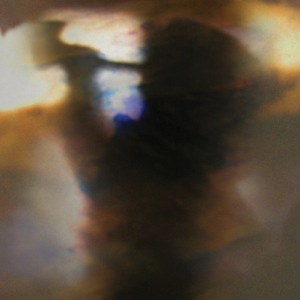
3
Animal Collective
Fall Be Kind
[Domino; 2009]
January 2009 gave us Merriweather Post Pavilion and Fall gave us more of the same. On the back of the first official Grateful Dead sample, like ever, “What Would I Want? Sky” set fall be kind up as another unimpeachable Animal Collective release. Panda Bear is on fire, as per usual, chunking out more dead-eyed psychotronic jammers (“Blood,” “I Think I Can”) alongside Avey Tare’s unusually mystic and self-reflective works. It functions like all the best Animal Collective EPs, as representations of their wonderfully exploratory careers in microcosm, but this one in particular stands above the rest. You’ve got straight jams, some of the best of a storied career all slammed into a little five track release.
– Colin Joyce
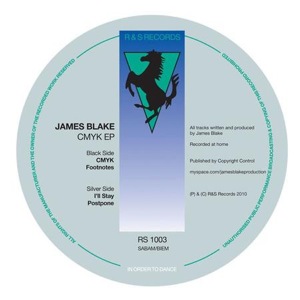
2
James Blake
CMYK
[R&S; 2010]
Aside from the name attached to the songs, none of the works in James Blake’s EP trilogy have much in common with one another, and the transformation his sound has undergone is almost more thrilling than the music itself. With CMYK‘s tattered old R&B samples and circuitous production, Blake has fashioned elements from jazz, dub and electronica into something truly unique, challenging what should be called dance music in the process.
– Brendan Frank
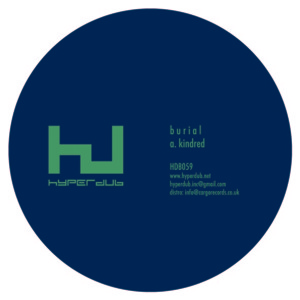
1
Burial
Kindred
[Hyperdub; 2012]
Life moves at an incredible rate. Sometimes I find myself needing to reflect on something or clear my mind and I take a walk through the streets of my city. More times than not on these journeys, I find Burial’s Kindred EP to be my accompanying soundtrack.
Despite it being void of any true lyrics, Kindred may just be the most emotionally resonating release of the past five years. Within the span of the A-side and title track, my emotional state is exacerbated through its melancholic atmosphere and the dichotomy between its jarring, mechanical, and idiosyncratic bass and drums and the angelic (and unfortunately unknown) soul sample the UK producer employs. “Loner” is Kindred‘s glue, it has just as much substance as the tracks it is sandwiched between but with its upbeat drums and driving synth sequence, it’s a comforting core for one to rest on — by now I feel numb. But soon comes the enormous “Ashtray Wasp” with its menacing arpeggiated synths and eery yet seductive vocals (“I want you”), which everything is put into perspective for me. As I take a look at my surroundings — from the awe inspiring skyscrapers around me, to desolation of the spaces the homeless carve out for themselves —”Ashtray Wasp”‘s core is dissolved to haze in its final minutes with its wistful bells and nuances reminding me that nothing lasts forever. It’s ever so poignant and humbling.
Kindred is more than just the best EP of the past five years. It’s more than my 31-minute personal catharsis. It’s part of a family of art, the next in line in a history of electronic music that will go on to affect people on a deep and emotional level — making the title Kindred so aptly fitting.
– Evan Kaloudis

